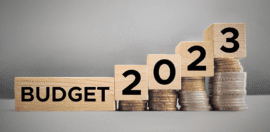Should you include economic modelling in your pitch to government?

14 March 2023 at 9:12 am
Economic modelling can come with a hefty price tag. Neil Pharaoh examines whether it’s worthwhile.
A hotly contested subject is whether organisations should invest the time, money and effort into doing things like a cost/benefit analysis, or to show the long-term savings to government when asking them to fund a program. Will this extra step help your organisation’s case or simply be a waste of time, money, and effort?
Over the past 15 or so years, there was a transition towards ensuring that any spending of government can show economic benefits or savings down the track. This mantra was picked up rapidly and led to the rise of things like social impact bonds, as well as more consideration to things like long-term costs, or cost shifting. But the question remains: how much value and time should you invest in looking at longer term costs and savings (particularly if you are on a tight budget as a social purpose organisation) when trying to secure funding from government?
The short answer is it depends.
There are a few circumstances where economic modelling is worthwhile, let me step through them.
Firstly, if your funding “pot” has been through cabinet or parliament and is now sitting with the public service, detailed policy, genuine impact, and things like cost benefits do make a substantial difference. Public servants, whether in central agencies or policy departments are usually focused on the details of what works, what is optimum, what is the best outcome, and usually have the time to dig into more details. Typically speaking, facts and figures work best across the public service, and often have substantially more impact than they would in a political offices. While in many parts of our lives facts seem to no longer matter, they remain critical in this area. So, if you proposal is targeting these stakeholders, facts, figures, impacts and modelling mean something. But remember, do not overdo it—it needs to be proportional and need not be perfect.
Secondly, economic modelling is often worthwhile where there is a state/federal issue at play where you can try to shift costs from one jurisdiction to another. Let me take a really oversimplified example (and not completely factually accurate, so take it as indicative) – if you go to a public hospital there are agreements between state and federal governments to fund hospitals, but is still is primarily a state issue and they bear the primary cost. If you go to a GP who bulk bills, the federal government pays under Medicare.
So if you have a program which shows less entrances into hospital (state cost) and passes those costs through to the federal government (like Medicare) many state governments will jump at this opportunity (or vice versa). This quirk in our federation is the second example of where showing cost/benefit analysis works – so long as the shifting suits the government you are talking to.
Thirdly, some ministers are genuinely (albeit rarely at both levels of government) quite technocratic or academic. The key word being “some”. These few ministers—and there are very, very few—will actually be across the detail, understand these types of models and trends, and actually appreciate the effort.
There are equally many examples where economic modelling will not substantially shift your case, typically these are:
- When the decision is sitting with a variety of cabinet ministers or potentially have caucus input, in which case electoral politics always trumps – the best examples of this are now being investigated about the former Morrison Government such as the car parking in marginal and Liberal seats debacle. While we all want to see less of this, and the Albanese government has made substantial strides in this space, politics still matters, marginal seats still make governments, and elections choose who sits on Treasury benches.
- The closer you get to elections – ironically, the less facts and figures matter. While we like to aspire that Australians are all fully informed, none of us are for every topic. That means reactions, stories, media, campaigns and communications all have more influence the closer we get to the end of the electoral cycle. It is not to say that good announcements based on solid foundations do not occur, it is just other factors carry more sway at these times as well.
- When something “blows up” and government is just trying to make it go away. For a variety of reasons sometimes topics of general discussion become stuck on the front page or in a media cycle and governments of all levels and colours want those problems to go away (or at least look like they are going away). This is where you see seemingly random money drops to different organisations that are, or are at least perceived to be, solving issues in a particular space occur. Increasingly these are the times where governments announce Royal Commissions to look like they are solving an issue, where often it just kicks the can down the road or abrogates what governments should be doing (making decisions) because they want somebody else to take the fall – the higher frequency of Royal Commissions at all levels of government of late is an example of this. Royal Commissions (often called yachts for lawyers for a reason) and random money drops to “solve” issues are occasions where it doesn’t matter one bit what the cost benefits are, government is throwing money at a purely political problem – so no amount of modelling will help your case.
So when considering whether you should do the hard yards on economic modelling, consider the circumstances and political environment. Think through the above (or similar) examples, and ask for help if needed to understand where things may be at.
Above all, only spend when it increases the likelihood of achieving your objectives – literally millions of well-written, academically researched reports just sit on shelves, or the bin (or consume countless amounts of data never to be seen again).
Happenings on the Hill is a fortnightly column focusing on all things politics, policy, campaigns, and advocacy. Focusing on both Federal and State & Territory politics, stay tuned for updates around political trends and elections, lobbying and advocacy news, and hints, tips and ideas on government engagement that are specifically written for the social purpose/for purpose sector.







